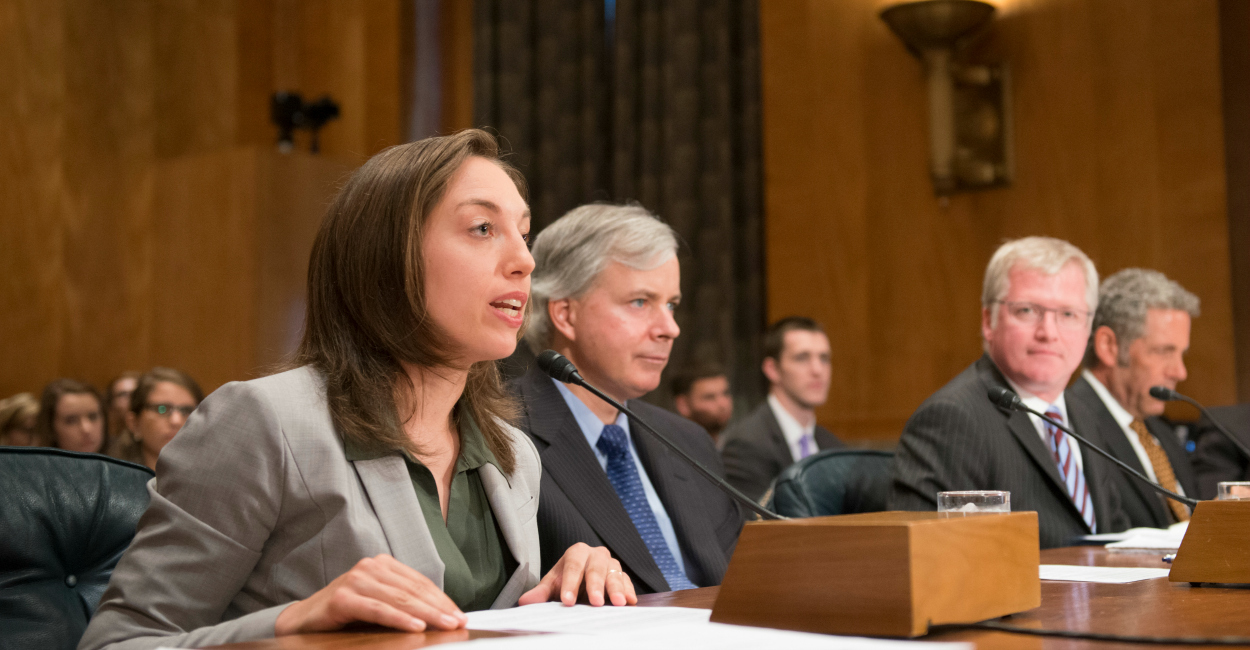A Spotlight on Government Waste and Corporate Welfare
Amber Athey /
While it is no surprise to most Americans that government tends to operate less efficiently than the private sector, the amount of money that is lost or mishandled is often much higher than many people imagine. The United States Postal Service (USPS), for example, faced losses of approximately $2 billion per quarter in the 2014 fiscal year. Despite restructuring plans and deals with Amazon, the USPS simply isn’t operating efficiently.
This and more was discussed last week during a hearing before the Senate Subcommittee on Federal Spending Oversight and Emergency Management. The subcommittee heard testimony from five experts on the topic of Wasteful Spending in the Federal Government. In his opening remarks, Subcommittee Chairman Rand Paul (R–KY), recognized the large sum of money that the federal government wastes on mismanagement and unnecessary programs. He cited examples including the case of the USPS, school lunch programs, and the Export–Import Bank.
One expert, The Heritage Foundation’s Romina Boccia, focused her testimony on the abundance of corporate welfare in government programs. Boccia asserted that corporate welfare and government waste are a result of the government overstepping its proper boundaries. The federal government encroaches on areas better left to “individuals or businesses in the private sector, or state and local governments…. The most comprehensive, substantive, and lasting solution…is to return to limited government.”
Other experts echoed her sentiment, suggesting that prioritizing spending should be one of the government’s main goals. Chris Edwards, director of tax policy studies at the Cato Institute, proposed a constitutional amendment that would require the House and Senate to write and sustain a balanced budget, and force legislators to make tough decisions on which programs are really necessary.
Donald Kettl, professor of public policy at the University of Maryland, said that wasteful spending stems from “doing poorly those things that government must do.” Boccia agreed with Kettl that poor government management leads to wasteful spending and added that the government does things poorly because it tries to do too much.
Ideally, Boccia said, Congress should eliminate programs that lie “outside the proper scope of the federal government,” concurrently reducing the amount of things that “government must do.” Boccia recommended that Congress adopt a dedicated commission, similar to the Defense Department’s Base Closure and Realignment Commission (BRAC), to reduce wasteful spending and corporate welfare.
Senator Paul concluded the hearing by asking the witnesses to submit proposed process reforms and program cuts, stating, “Maybe there are some programs we’d agree on eliminating. Maybe there would be some reforms…if you’ll continue to work with us we’ll see what kind of list we can come up with.”
Amber Athey is currently a member of the Young Leaders Program at The Heritage Foundation. For more information on interning at Heritage, please click here.

